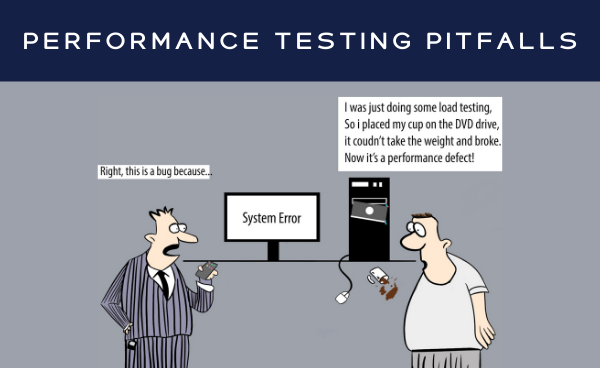2002 Submarine Bribery Case: French Prosecutors Name Najib Razak

Table of Contents
The Scorpène Submarine Deal: A Controversial Contract
The 2002 submarine bribery case centers around the controversial contract between Malaysia and DCNS (now Naval Group), a French defense contractor, for the purchase of two Scorpène-class submarines. This deal, finalized in 2002, involved a significant financial commitment from Malaysia, aiming to bolster its naval capabilities and regional defense posture. The total value of the contract remains a subject of ongoing debate and scrutiny, adding to the complexity of the 2002 submarine bribery case.
- Contract Details: The contract involved the acquisition of two Scorpène submarines, along with associated technology transfer and training provisions. The precise financial details, including the final cost and payment schedules, remain partially undisclosed, fueling further suspicion surrounding the deal.
- Initial Controversies: From its inception, the Scorpène submarine deal was surrounded by controversy. Questions were raised regarding the transparency of the bidding process, the selection of DCNS, and the overall fairness of the contract terms. These concerns, which initially lacked substantive proof, foreshadowed the later accusations of bribery and corruption within the 2002 submarine bribery case.
Allegations of Bribery and Corruption: The Heart of the Scandal
At the heart of the 2002 submarine bribery case lie serious allegations of bribery and corruption. French prosecutors allege that significant kickbacks and illegal payments were made to Malaysian officials to secure the lucrative Scorpène submarine contract. These allegations involve substantial sums of money, channeled through various offshore accounts and complex financial transactions, making it a challenging case to fully unravel.
- French Investigation: The involvement of French authorities stems from the fact that DCNS, the contracting company, is French. Investigations conducted by French prosecutors uncovered evidence suggesting illegal payments made by DCNS or associated entities to facilitate the deal. The investigation leveraged international legal frameworks to pursue individuals and entities involved, regardless of their geographical location.
- Role of Alleged Middlemen: The allegations involve a network of alleged middlemen who allegedly facilitated the transfer of illicit funds. These individuals, suspected of having connections to high-ranking Malaysian officials, played a crucial role in allegedly funneling bribes and kickbacks. Their actions are central to the unfolding narrative of the 2002 submarine bribery case.
Najib Razak's Involvement: The Accusations and Responses
The 2002 submarine bribery case took a significant turn when French prosecutors named Najib Razak, a former Prime Minister of Malaysia, as being implicated in the scandal. The specific accusations against him are currently under investigation.
- Accusations: While the full details of the accusations remain under wraps pending ongoing legal proceedings, the allegations against Najib Razak concern his alleged role in receiving or facilitating the receipt of bribes linked to the Scorpène submarine deal.
- Responses and Political Ramifications: Najib Razak has denied all allegations of wrongdoing, claiming his innocence and asserting that the accusations are politically motivated. However, these accusations have profound political implications for Malaysia, potentially leading to further scrutiny of past government dealings and influencing future political landscapes. The implications extend beyond Malaysian politics, impacting international perceptions of accountability in high-value defense contracts.
The Ongoing Investigations and Legal Proceedings
The investigations surrounding the 2002 submarine bribery case are ongoing, involving complex legal procedures across multiple jurisdictions. The international nature of the case presents unique challenges, requiring close collaboration between French and Malaysian authorities.
- International Cooperation: Successful prosecution relies heavily on international cooperation, the exchange of legal documents, and witness testimonies. Differences in legal systems and national sovereignty can complicate the process of gathering evidence and conducting witness interviews.
- Challenges and Evidence: Prosecutors face challenges in gathering sufficient irrefutable evidence, particularly regarding the complex financial transactions and alleged offshore accounts. The expected evidence will play a pivotal role in determining the ultimate outcome of the case.
The Wider Implications: International Corruption and Defense Contracts
The 2002 submarine bribery case extends far beyond its immediate implications for Malaysia and France. It serves as a stark reminder of the pervasive issue of international corruption within defense contracting.
- Global Implications: The scandal underscores the need for greater transparency and accountability in the procurement of defense equipment worldwide. The case highlights vulnerabilities within international defense deals, emphasizing the need for stronger regulatory frameworks to prevent similar occurrences in the future.
- Transparency and Reform: This case highlights the crucial need for increased transparency and robust anti-corruption measures within the global defense industry. The absence of such measures often creates fertile ground for bribery and corruption to flourish.
Conclusion
This article explored the complexities of the 2002 submarine bribery case, focusing on the significant development of French prosecutors naming Najib Razak. The allegations of bribery and corruption, the ongoing investigations, and the potential ramifications for Malaysian politics and international defense contracting highlight the need for greater transparency and accountability in such deals. The case underscores the global challenge of combating corruption within the defense industry and the importance of international cooperation in pursuing justice. Stay informed about the developments in this ongoing 2002 submarine bribery case and the implications for international anti-corruption efforts. Understanding the intricacies of the Najib Razak case and similar scandals is crucial to promoting greater transparency and accountability in global defense procurement.

Featured Posts
-
 The Bank Of Canadas Dilemma How To Tackle Persistent Core Inflation
May 22, 2025
The Bank Of Canadas Dilemma How To Tackle Persistent Core Inflation
May 22, 2025 -
 Wtt Star Contender Chennai Oh Jun Sungs Thrilling Victory
May 22, 2025
Wtt Star Contender Chennai Oh Jun Sungs Thrilling Victory
May 22, 2025 -
 Streamers Making Money A More Complex Landscape For Viewers
May 22, 2025
Streamers Making Money A More Complex Landscape For Viewers
May 22, 2025 -
 Analyzing Aimscaps Participation In The World Trading Tournament Wtt
May 22, 2025
Analyzing Aimscaps Participation In The World Trading Tournament Wtt
May 22, 2025 -
 Avoid These 3 Financial Pitfalls Expert Advice For Women
May 22, 2025
Avoid These 3 Financial Pitfalls Expert Advice For Women
May 22, 2025
Latest Posts
-
 Dissecting The Allegations A Deep Dive Into The Blake Lively Controversy
May 22, 2025
Dissecting The Allegations A Deep Dive Into The Blake Lively Controversy
May 22, 2025 -
 The Blake Lively Allegedly Situation Examining The Evidence And Implications
May 22, 2025
The Blake Lively Allegedly Situation Examining The Evidence And Implications
May 22, 2025 -
 Blake Livelys Alleged Actions News Analysis And Public Reaction
May 22, 2025
Blake Livelys Alleged Actions News Analysis And Public Reaction
May 22, 2025 -
 Understanding The Allegations Surrounding Blake Lively A Comprehensive Look
May 22, 2025
Understanding The Allegations Surrounding Blake Lively A Comprehensive Look
May 22, 2025 -
 Blake Lively Allegedly Separating Fact From Fiction In Recent News
May 22, 2025
Blake Lively Allegedly Separating Fact From Fiction In Recent News
May 22, 2025
